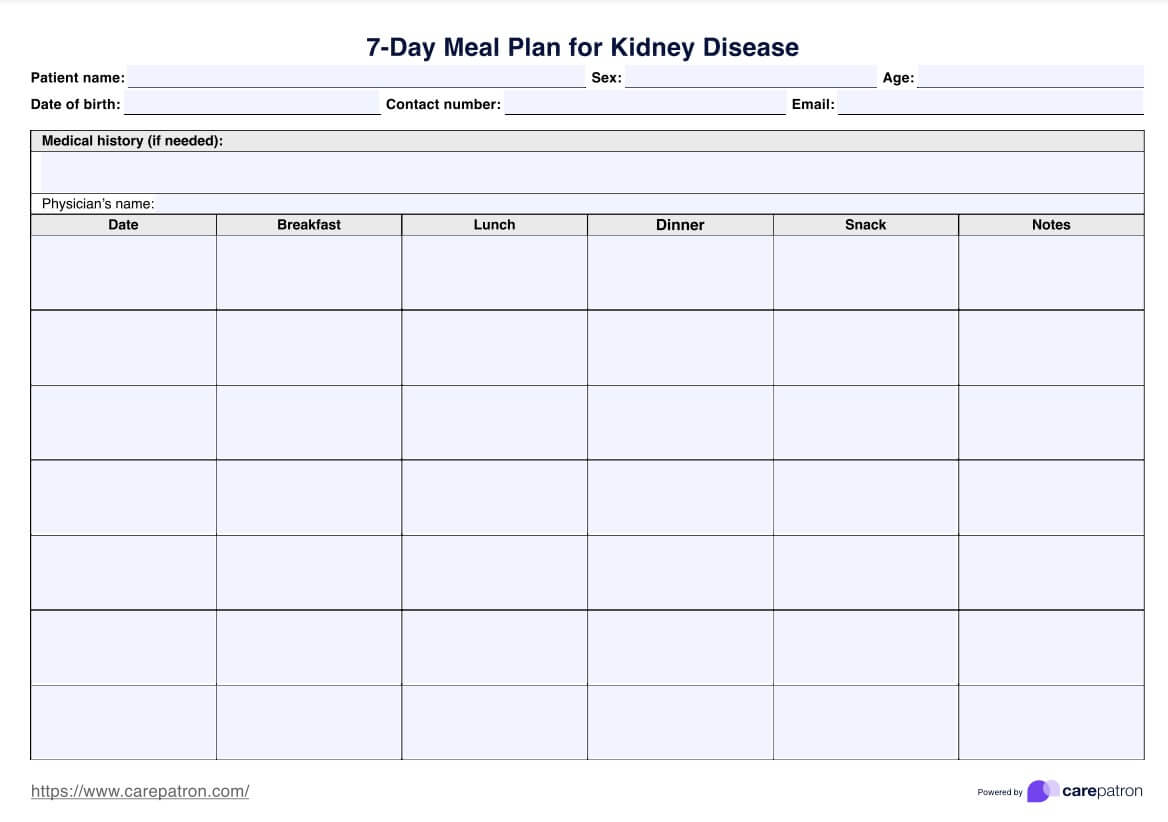The best kidney diet includes foods low in sodium, sugar, phosphorus, and potassium. Eating this way not only helps control CKD but might also help you maintain a healthy weight by cutting back on sugar and salt.

7-Day Meal Plan for Kidney Disease
Do you have a patient with CKD who needs help planning their meals? Provide them with a 7-Day Meal Plan for Kidney Disease template.
7-Day Meal Plan for Kidney Disease Template
Commonly asked questions
A good kidney disease menu includes meals that include fresh fruits, vegetables, and lean proteins. Patients can use fresh herbs as salt substitutes to make the dishes more delicious since they have lower sodium than pre-made ones.
Kidney patients should avoid specific types of food: processed foods, junk food, and sweetened drinks. These foods are high in nutrients that can negatively impact kidneys and potentially worsen other health complications. Read the food labels for canned vegetables first to check for sodium content.
EHR and practice management software
Get started for free
*No credit card required
Free
$0/usd
Unlimited clients
Telehealth
1GB of storage
Client portal text
Automated billing and online payments











